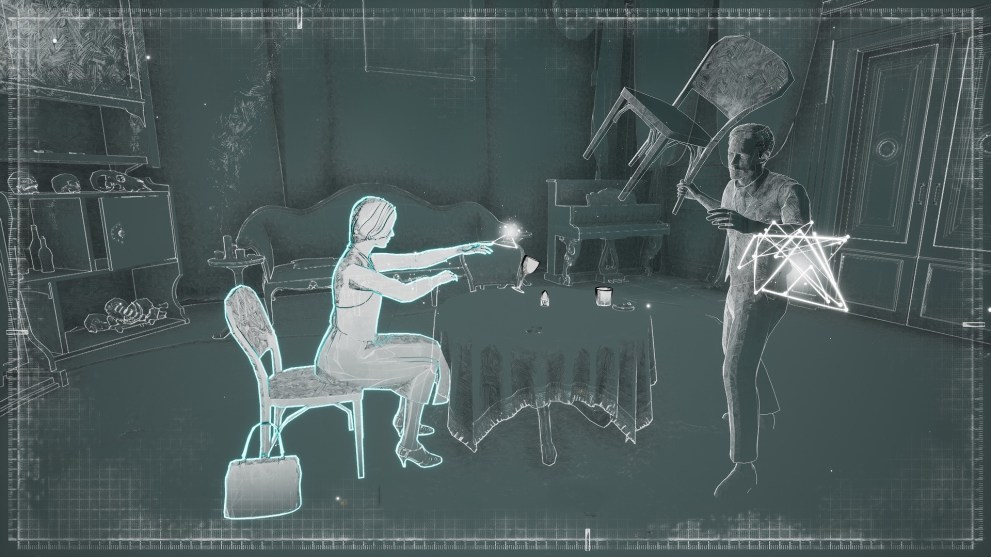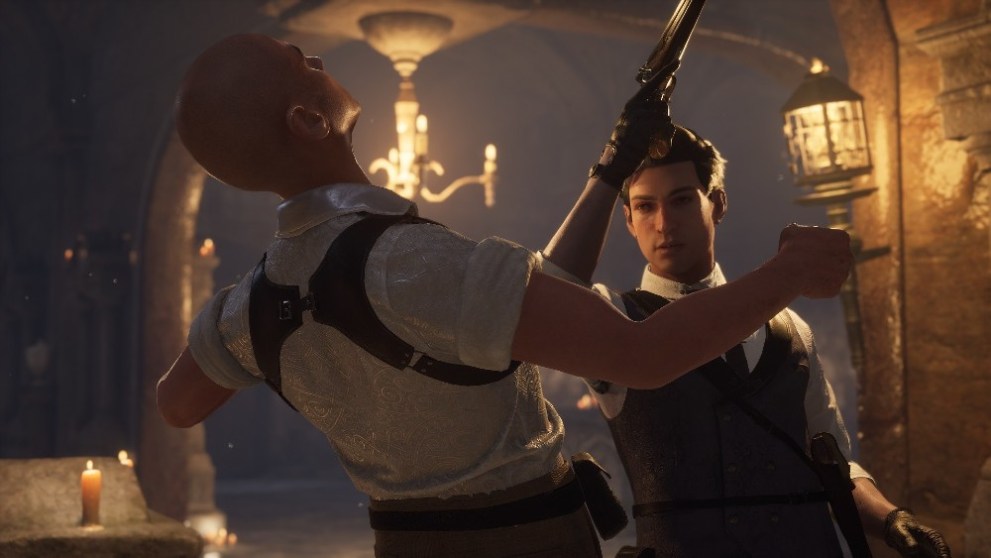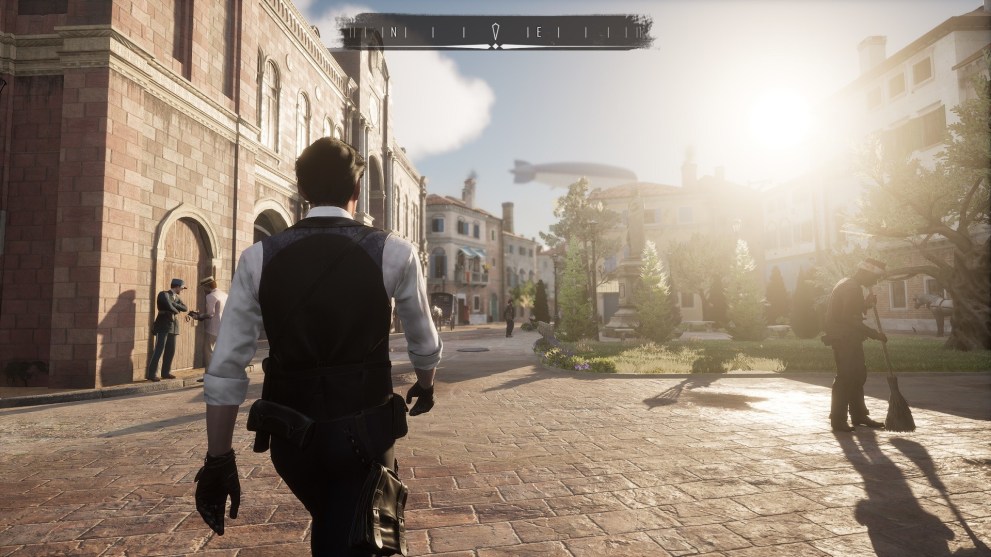Sherlock Holmes Chapter One on PC
When I first heard that Frogwares would be soft rebooting their Sherlock Holmes series, I was genuinely excited. While certainly not perfect, there was always a lot of potential in the investigative elements of their games that could have been excellent with a few slight tweaks. Unfortunately, the changes made in Sherlock Holmes Chapter One only make the series duller and unnecessarily tedious.
As the title indicates, Sherlock Holmes Chapter One serves as an origin story for the world’s greatest detective, following his adventures as an up-and-coming investigator. The narrative sees him return to his childhood home of Cordona, a small town located on an island in the Mediterranean, with his longtime friend, Jon.
It doesn’t take long to realize there is a sinister crime conspiracy lurking beneath the surface of this seemingly quaint town, and Sherlock and Jon are caught in the middle of it. The duo cannot even check into their hotel room before overhearing that a theft of a precious diamond has occurred at a seance.
Naturally inquisitive, Holmes investigates using clues and eyewitness testimony to try and track down what really happened. To do this successfully, there are a few different gameplay elements to get the hang of.

The first comes down to surveying the actual scene of the crime. This element is pretty much identical to previous Frogwares Sherlock Holmes games, as you look through areas and objects of interest using the detective’s keen vision and instinct.
By going over this information, Sherlock will create clues in his mind palace while Jon writes down important bits of information in his journal. Using both of these investigative elements, Sherlock Holmes Chapter One tasks you with unraveling each mystery and making accusations. The biggest difference this time around is there’s a large focus on exploration.
When I say exploration, I really mean exploration. Unlike Crimes & Punishments and The Devil’s Daughter, Sherlock Holmes Chapter One is a completely open world. This means that instead of selecting specific scenes to travel to via a map, players are given the entirety of Cordona to run around in.
While this may sound like a cool idea on the surface, it becomes apparent very quickly that this is yet another game that didn’t need an open-world element in it. The town and citizens of Cordona aren’t interesting or appealing, nor are there any gameplay elements that occur to merit the need to walk around freely, making the setting feel bland and empty as a result.
Sure, a few small things can be done in the game that attempt to make the world feel more alive, but they only pad time between the large-scale investigations, which is where the real fun is. I really didn’t expect to have to hunt down collectible items to fill up Sherlock’s childhood home in Sherlock Holmes Chapter One, but that is exactly what ended up happening.
On top of this, the game adds combat elements that control like something out of a PS2 title. I never thought I’d miss the old QTE fight scenes from the previous games, but the shooting and hand-to-hand fights in Sherlock Holmes Chapter One were so bad that I was begging for them to end before long.

I’d honestly be able to overlook the egregious addition of these new features if it weren’t for the changes that were made to investigations, especially when it comes to progression. To make the game feel like a true detective experience, there is a “no hand-holding” approach to solving each task.
This usually means you’re given an objective or task as vague as looking for a thing in a general area. For example, early on in the game, you have to find Sherlock’s old home.
To find the manor, you’re only given a clue that it is near a bridge and a church. In order to narrow this down, the game requires you to pin said clue and question specific NPCs.
While this shouldn’t sound too complicated, the process of needing to go back and sort through all of the different clues — which don’t go away even as each case is solved, by the way — just feels so unnecessary. Why there couldn’t have been dialogue options instead of needing to sort through clues in a “is this your card?” manner while hoping you’re talking to the correct NPC is beyond me.
Figuring out how to get to some areas in the story is only the first frustration, though. Once you actually arrive at a scene, the clues and direction Sherlock is supposed to follow are just as vague. This is seen on full display in the same quest that has you find the manor.
After arriving at the right place and finding out it’s locked, Watson tells you to look around. After looking around and only finding two random memories, there still isn’t any indication of how to get in.
Trying to think like Sherlock, I thought maybe the charred door could be broken down with the ax that was talked about in the story about Mycroft. No. Perhaps the rope next to Wood Joe could be used to climb the house? Nope.
Alright, let’s talk to Watson and see what his advice is. Oh, he’s only got quippy one-liners to add to the conversation instead of any real help or tips? Perfect.

In reality, it turns out that a clue needed to be pinned from the case book to prompt an action to appear. Once it does, Sherlock relives an old memory and realizes that the door isn’t even locked but that he just imagined it was.
I can’t convey how frustrating it is to go through that sequence only to be met with that line of dialogue and story structure. And because of the open-world, hands-off element of the game direction, this is something that happens far too often.
There were so many times I just wanted to do a big investigation and solve a whodunnit only to be either lost, confused, or annoyed with a meaningless quest tied to the game’s progression.
Sherlock Holmes Chapter One takes the series in a completely opposite direction of its predecessors, souring its potential in favor of adding gameplay elements that pad runtime and take away from the investigations. Fans of the series may find some joy in getting to experience the original content or solving clues the hard way, but I was certainly not one of them.
- Big investigations are still pretty fun.
- Carries over elements that worked from previous series.
- Needless open-world and combat elements.
- Quests pad runtime and take away from big investigations.
- Vague "no hand-holding" gameplay prompts and direction.
- Cordona is a bland and lifeless setting.





Published: Nov 15, 2021 12:15 pm